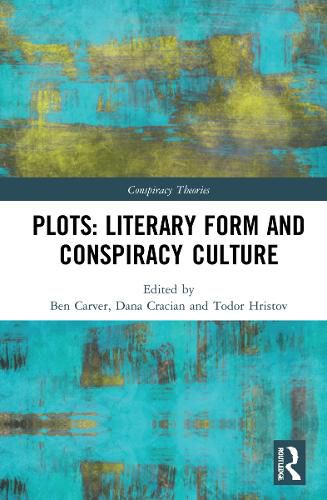Readings Newsletter
Become a Readings Member to make your shopping experience even easier.
Sign in or sign up for free!
You’re not far away from qualifying for FREE standard shipping within Australia
You’ve qualified for FREE standard shipping within Australia
The cart is loading…






This edited collection contributes to the study of conspiracy culture by analysing the relationship of literary forms to the formation, reception, and transformation of conspiracy theories.
Conspiracy theories are narratives, and their narrative form provides the structure within which their 'readers' situate themselves when interpreting the world and its history. At the same time, conspiracist interpretations of the world may then be transmediated into works of literature and import popular discourse into narrative structures. The suppression and disappearance of books themselves may generate conspiracy theories and become co-opted into political dissent. Additionally, literary criticism itself is shown to adopt conspiracist modes of interpretation. By examining conspiracy plots as literary plots, with narrative, rhetorical, and symbolic characteristics, this volume is the first systematic study of how conspiracy culture in American and European history is the consequence of its interactions with literature.
This book will be of great interest to researchers of conspiracy theories, literature, and literary criticism.
$9.00 standard shipping within Australia
FREE standard shipping within Australia for orders over $100.00
Express & International shipping calculated at checkout
This edited collection contributes to the study of conspiracy culture by analysing the relationship of literary forms to the formation, reception, and transformation of conspiracy theories.
Conspiracy theories are narratives, and their narrative form provides the structure within which their 'readers' situate themselves when interpreting the world and its history. At the same time, conspiracist interpretations of the world may then be transmediated into works of literature and import popular discourse into narrative structures. The suppression and disappearance of books themselves may generate conspiracy theories and become co-opted into political dissent. Additionally, literary criticism itself is shown to adopt conspiracist modes of interpretation. By examining conspiracy plots as literary plots, with narrative, rhetorical, and symbolic characteristics, this volume is the first systematic study of how conspiracy culture in American and European history is the consequence of its interactions with literature.
This book will be of great interest to researchers of conspiracy theories, literature, and literary criticism.